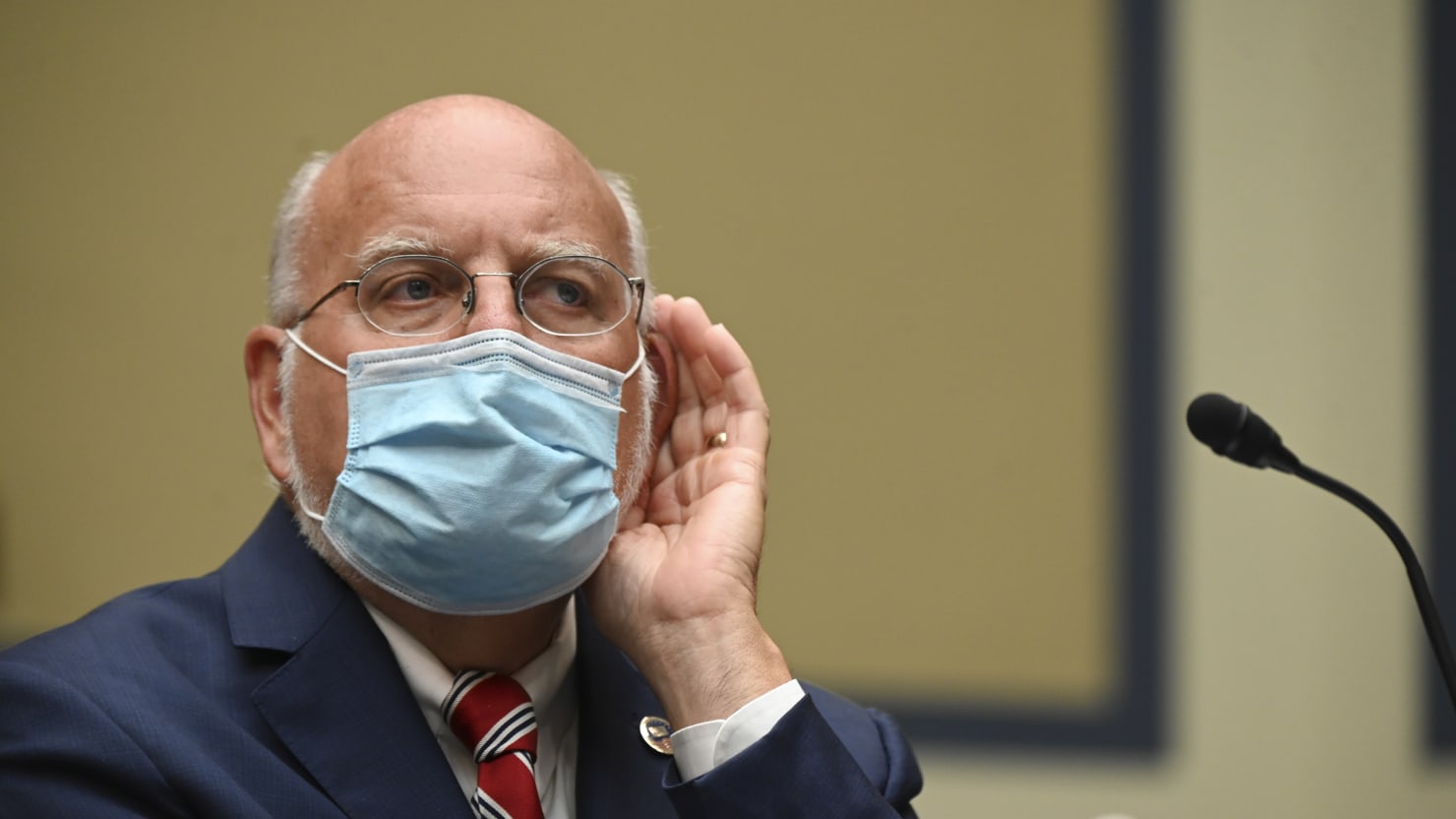CDC’s Redfield Pleads Ignorance on Messy Coronavirus Hospital Data Scheme

Between fiery exchanges and partisan monologues, the director of the Centers for Disease Control and Prevention, Dr. Robert Redfield, testified on Capitol Hill on Friday that he wasn’t told until after a decision was made that hospitals would be directed to bypass his agency, sending COVID-19 data straight to another database in Washington.
Redfield answered a string of questions on the subject from Rep. Maxine Waters (D-CA), saying he never discussed the decision with Vice President Mike Pence or Health and Human Services Secretary Alex Azar—but that he believes the plan will help allocate critical experimental COVID-19 drugs like Remdisivir to the hospitals who need it.
Though the Trump administration told hospitals the new online system would be an improvement over the old platform run by the CDC, NPR has reported that data analysts say the new system is rife with significant inconsistencies and errors. The New York Times reported at the time that the change came as a surprise to the rank-and-file at the CDC.
During the Friday morning hearing before the House Subcommittee on the Coronavirus Crisis, Redfield also reiterated his belief that schools must reopen in “the public interest of the students in the nation.”
“We need to get on with it,” said Redfield, who told reporters earlier this week that he would “absolutely” send his grandchildren back to campuses in the fall.
But in the same hearing, Assistant Secretary of Health Adm. Brett Giroir emphasized that even an increase in testing “does not substitute for avoiding crowded indoor spaces,” a statement seemingly at odds with attempting to send droves of students back to overflowing classrooms and cafeterias.
Both sides of the aisle took turns trading barbs, as the chair of the subcommittee, U.S. Rep. James Clyburn (D-SC) slammed the administration’s response, claiming it “stands out as among the worst in the world.”
“To improve our response, we need to identify and correct past failures,” said Clyburn, noting that at least 11 states were performing fewer than 30 percent of the diagnostic testing they need to control current outbreaks. “The administration has failed on testing.”
In one particularly tense back and forth, U.S. Rep. Jim Jordan (R-OH) berated the nation’s leading public health and infectious disease expert and occasional White House target Dr. Anthony Fauci for having “opined on a lot of things” but refusing to condemn protests explicitly.
As is typical, Fauci kept his cool even as Jordan peppered him with questions about why some hair stylists and gym owners have been punished for operating amid civil rights protests across the country in the wake of George Floyd’s killing by police.
The alleged contradiction between discouraging mass gathering and health officials countenancing protest rage has been an obsession on the right in recent months.
Jordan asked, “Does [protesting] increase the spread of the virus?”
Fauci responded, “I think I can make a general statement. Crowding together, particularly when you’re not wearing a mask, contributes to the spread of the virus.”
Jordan responded, “Should we limit the protesting?”
Fauci said, “I’m not sure what you mean. How do we say limit the protesting?”
Jordan repeated, “Should government limit the protesting?”
Fauci began, “I don’t think that’s relevant to—”
Jordan cut him off, “You just said it increases the spread of the virus. I’m just asking, should we limit it?
Fauci responded, “I’m not in a position to determine what the government can do in a forceful way.”
Jordan retorted, “Well you make all kinds of recommendations. You make all kinds of comments on dating, baseball, on everything you can imagine.”
When Fauci said he was “not going to opine on limiting anything,” Jordan spat back, “You’ve opined on a lot of things.”
Eventually, between the interruptions and Jordan’s increasingly raised voice, Fauci concluded his point, “I don't understand why you're asking me as a public health official who should get arrested or not."
He added, “Any crowd, whether it's a protest—any crowd of people close together without masks is a risk. And I'll stick by that statement. It's a public health statement. It's not a judgement."
tinyurlis.gdu.nuclck.ruulvis.netshrtco.de
